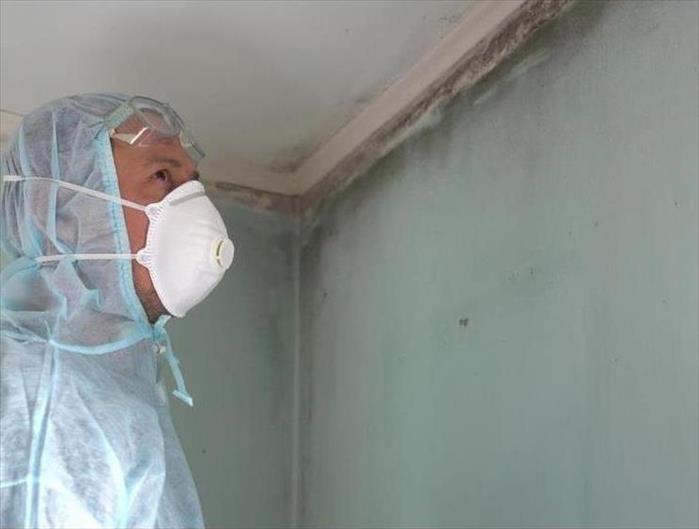Suing a Landlord for Mold Problems
5/10/2020 (Permalink)
Black mold can cause problems for businesses. If it gets into the ventilation system, you may notice a musky smell when the unit is running. It can also form under sinks, carpet, or any place moisture is left to sit. Some landlords may be unaware there is a problem and will gladly remedy the situation once they are informed of the problem. Many tenants and landlords have been able to work through the mitigation process without resorting to court proceedings. However, if your landlord is unresponsive to your requests or you have experienced adverse effects from the mold, you may need to file a lawsuit to recover your damages.
Determine Whether You Have Mold
Mold can grow on just about any organic, pulpy surface. If you suspect you have it, you can begin your search by looking closely at some common areas where it is found.
- Openings to ventilation systems
- Underneath carpets
- Below sinks and appliances
- Drywall
- Ceiling tiles
- Wood paneling
- Basements
Leaky plumbing or small roof leaks can lead to mold forming in places where you cannot see. You may need a mold inspector to search for mold underneath subfloors, behind walls, or inside of ventilation systems.
Know What Your Landlord Is Responsible For
Landlords are required by law to provide you a reasonably safe and healthy environment. The law prohibits them from knowingly renting out a unit with a black mold problem. This is known as the "implied warranty of habitability". If mold forms due to a problem with the building's plumbing or ventilation, they will most likely be responsible to pay for any cleaning, mold remediation, and restoration services. If you have experienced lost wages because of the situation, you may be entitled to compensation for this loss.
Finding black mold in Liberty, OK, is only the beginning. If you are dealing with a mold problem, an expert mold remediation company can rid your environment of the problem.



 24/7 Emergency Service
24/7 Emergency Service
